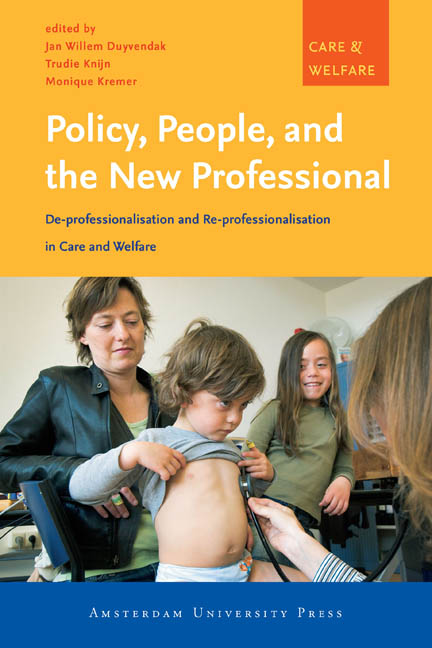 Policy, People, and the New Professional
Policy, People, and the New Professional 10 - Heroes of Health Care?: Replacing the Medical Profession in the Policy Process in the UK
Published online by Cambridge University Press: 23 January 2021
Summary
Not so long ago, a dozen or so people were gathered together at an invitation dinner hosted by one of Britain's think tanks and health policy research funders. As the meal drew to a close, the host invited one of the academics present to open the discussion with some prepared remarks. A lively informal discussion ensued. Among those who had remained silent for a while was a senior doctor who had been invited to participate. His comments then became a point of reference for several others in the discussion. Not long after this event, I found myself at another dinner, placed next to a government minister. Learning that much of my research was on the nursing profession, and thinking of the policy- related meetings that he had attended where both nurses and doctors were present, he asked, ‘Tell me, why don't the nurses say anything?’
As someone who has written about the classic and dominant professional identity exemplified by medicine as well as about nurses, allied health professionals and patients as the ‘others’ who sustain this identity, I am sometimes urged to say that things have changed. In this chapter I will document a number of key changes, accepting, however, that such changes are likely to be fitful and contradictory rather than tidy and unproblematic or evenly paced and linear. Change can only be achieved reciprocally with the involvement of others (including clients and coworkers). Discursive changes and the process of embedding change into institutional forms and policy practices are likely to be out of step with each other. These are some of the themes that thread through this chapter. My concern will be with arguments about the decline of medical power now prevalent in the sociology of professions, the manner in which arguments are advanced, and the often unacknowledged theoretical baggage that accompanies them. Perhaps it is time for a change of direction.
The Decline of Medical Autonomy in the UK
There is currently a fairly widespread consensus among sociologists and policy analysts about the declining power of the medical profession.
- Type
- Chapter
- Information
- Policy, People, and the New ProfessionalDe-professionalisation and Re-professionalisation in Care and Welfare, pp. 137 - 151Publisher: Amsterdam University PressPrint publication year: 2006
